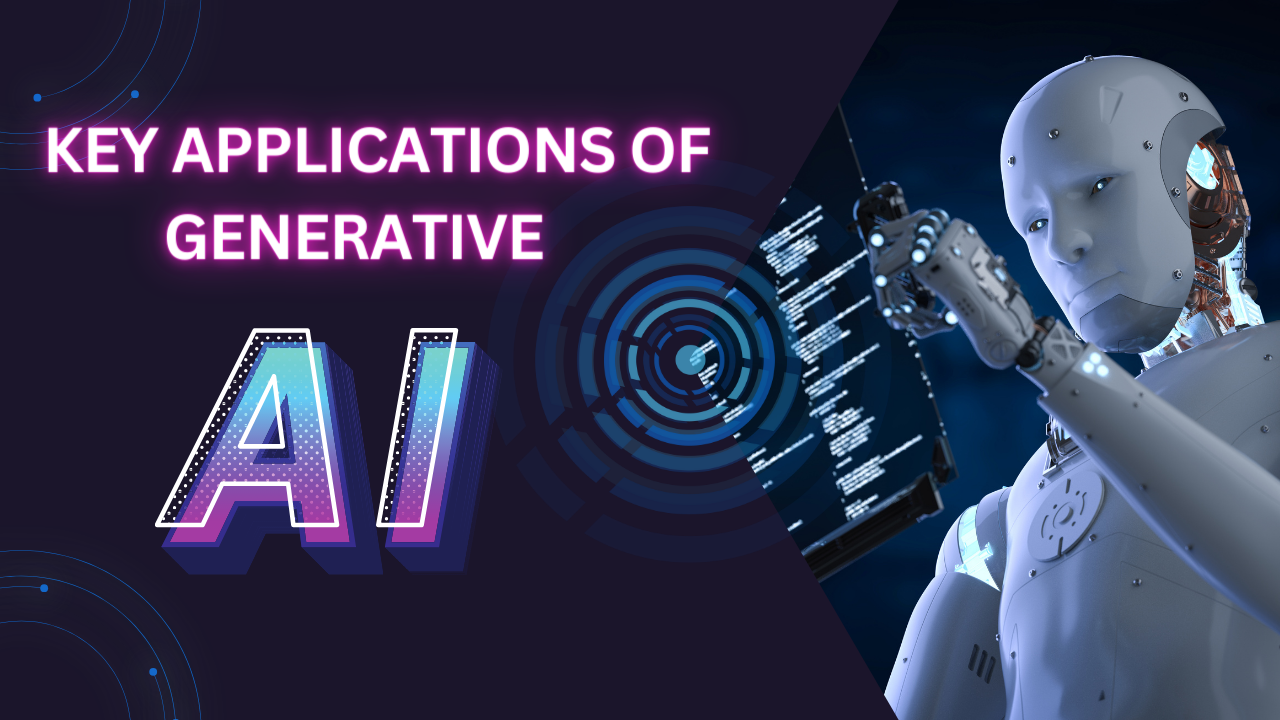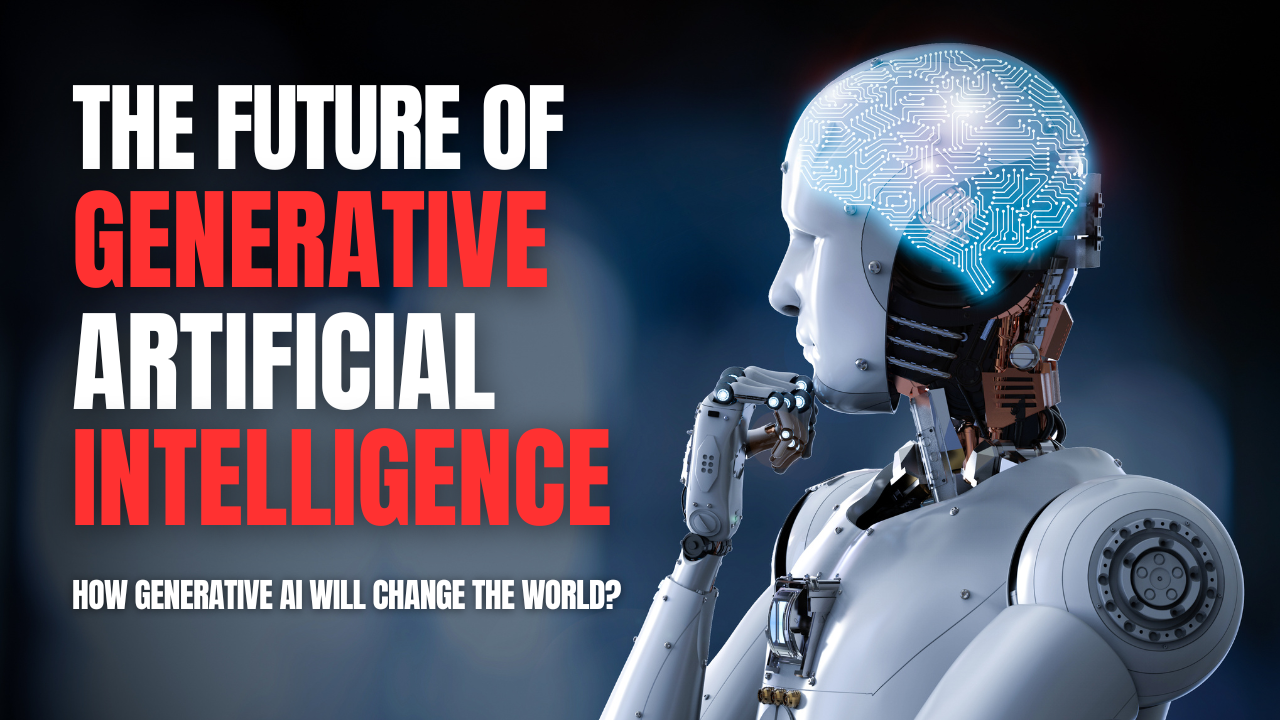
The Future of Generative AI is revolutionizing the tech landscape with its ability to create content, art, and solutions that were once solely the realm of human creativity. Its significance in modern technology cannot be overstated, as it paves the way for advancements in numerous fields. But what does the future hold for this emerging technology?
What is Generative AI?
Generative AI refers to systems that can generate text, images, and other media from data inputs. Unlike traditional AI, which often focuses on data analysis and prediction, generative AI creates new content. It operates through complex algorithms and neural networks, stimulate human-like creativity by learning from vast datasets.
Unlike traditional AI, which is designed to analyze and interpret existing data, generative AI can produce original outputs. This capability is achieved through complex models like Generative Adversarial Networks (GANs) and transformer-based models such as GPT (Generative Pre-trained Transformer).
The Evolution of Generative AI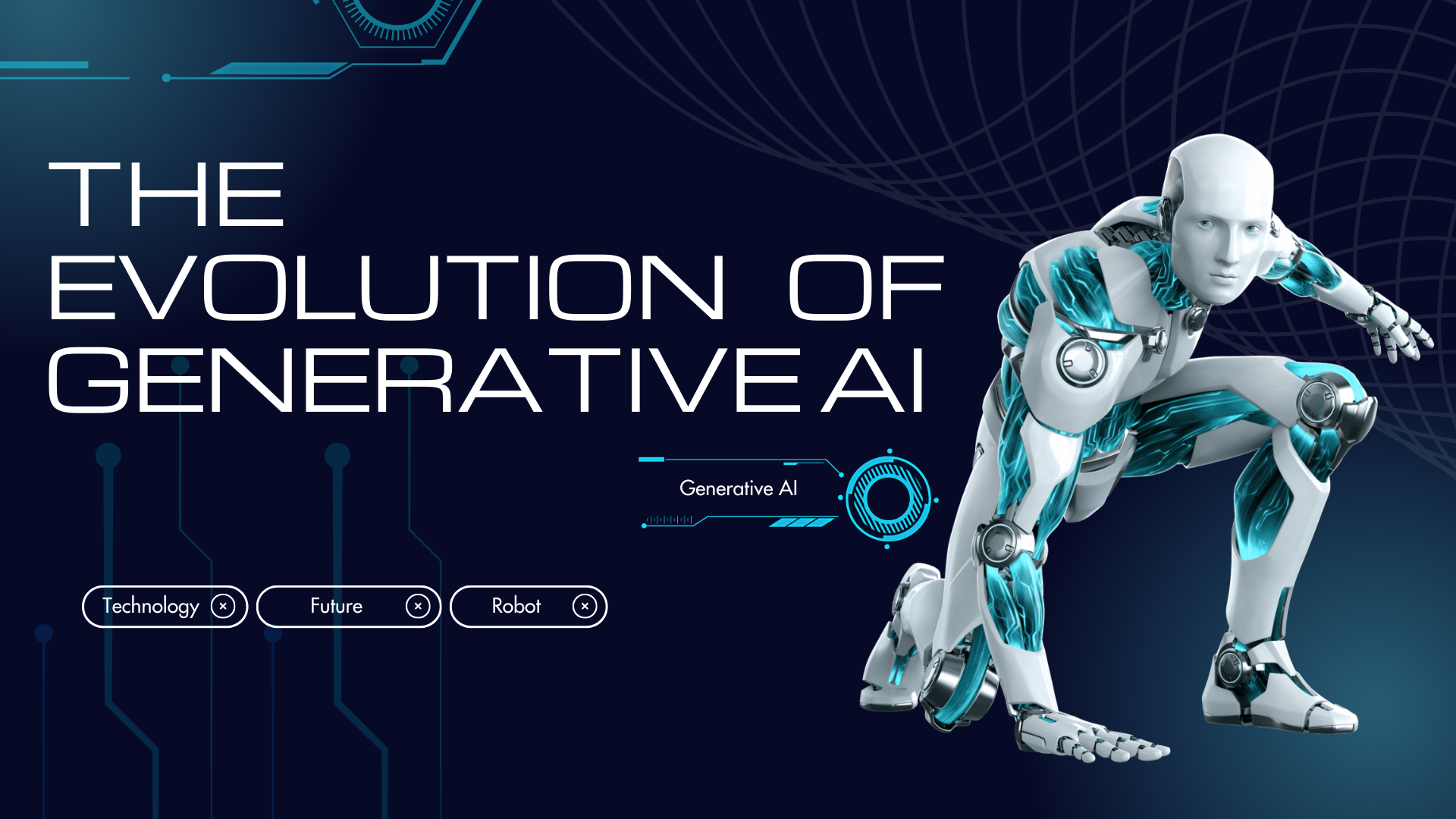
The journey of generative AI began with simple algorithms that could mimic basic patterns. Over time, these algorithms have evolved into sophisticated models capable of generating highly realistic and intricate content. Early applications of generative AI were seen in art and music, where AI could compose pieces in the style of famous artists or musicians. Today, the scope of generative AI has expanded far beyond these initial uses.
Key Applications of Generative AI
Content Creation
Content creation one of the most interesting and advanced application of generative AI. From writing articles and creating marketing materials to generating scripts for movies and TV shows, generative AI is changing the landscape of content production. Companies like OpenAI have developed models that can write coherent and contextually relevant text, making it easier for businesses to produce high-quality content at scale.
Healthcare
In healthcare, generative AI is being used to develop new drugs and personalize treatment plans. By analyzing vast amounts of medical data, AI can identify patterns and suggest new compounds for drug development. Additionally, generative AI can create synthetic medical images to augment training datasets, improving the accuracy of diagnostic tools.
Gaming and Entertainment
The gaming and entertainment industries are also reaping the benefits of generative AI. AI can generate realistic environments, characters, and storylines, providing players with a more immersive experience. In film production, generative AI can be used to create special effects and even entirely digital actors, reducing the time and cost associated with traditional methods.
Education
One of the most important application of Generative AI to revolutionize the education by creating personalized learning experiences. AI can generate custom curricula and learning materials tailored to individual students’ needs and preferences. This approach can help address the diverse learning styles and paces of students, making education more effective and inclusive.
Design and Architecture
In the fields of design and architecture, generative AI is being used to create innovative and efficient designs. AI can analyze spatial constraints and user requirements to generate optimal layouts and structures. This capability not only speeds up the design process but also results in more sustainable and user-friendly solutions.
Ethical Considerations in Generative AI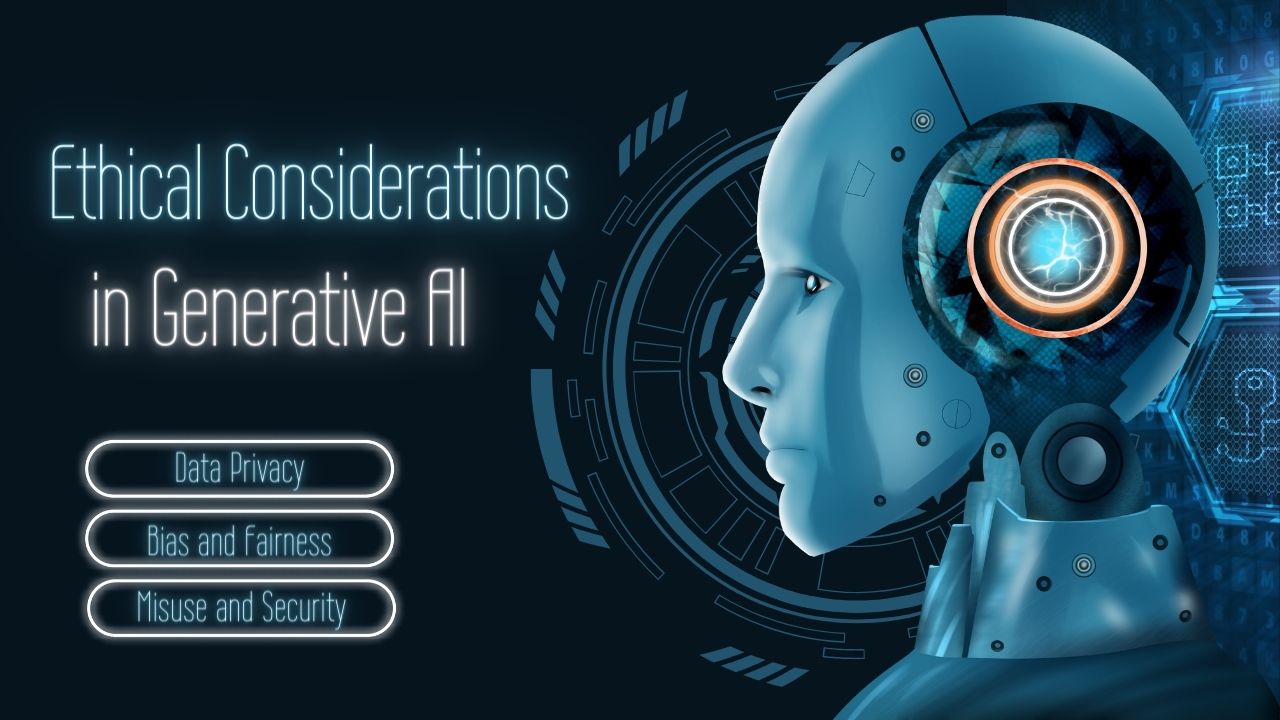
As generative AI becomes more prevalent, it is crucial to address the ethical implications associated with its use. Issues such as data privacy, bias, and the potential for misuse must be carefully considered. However, ensuring that AI systems are transparent, fair, and accountable is essential to prevent negative consequences.
Data Privacy
Generative AI relies on large datasets to function effectively. Ensuring that these datasets are collected and used responsibly is vital to protect individuals’ privacy. Therefore, companies must implement robust data governance practices and comply with regulations to safeguard sensitive information.
Bias and Fairness
AI systems can inadvertently maintain the existing biases present in the training data. It is essential to develop and train AI models on diverse and representative datasets to minimize bias. Additionally, ongoing monitoring and evaluation of AI systems can help identify and mitigate unfair outcomes.
Misuse and Security
The powerful capabilities of generative AI also pose risks if misused. For example, AI-generated content could be used to create deep fakes or spread misinformation. Implementing security measures and establishing guidelines for responsible use can help mitigate these risks.
The Future Impact of Generative AI
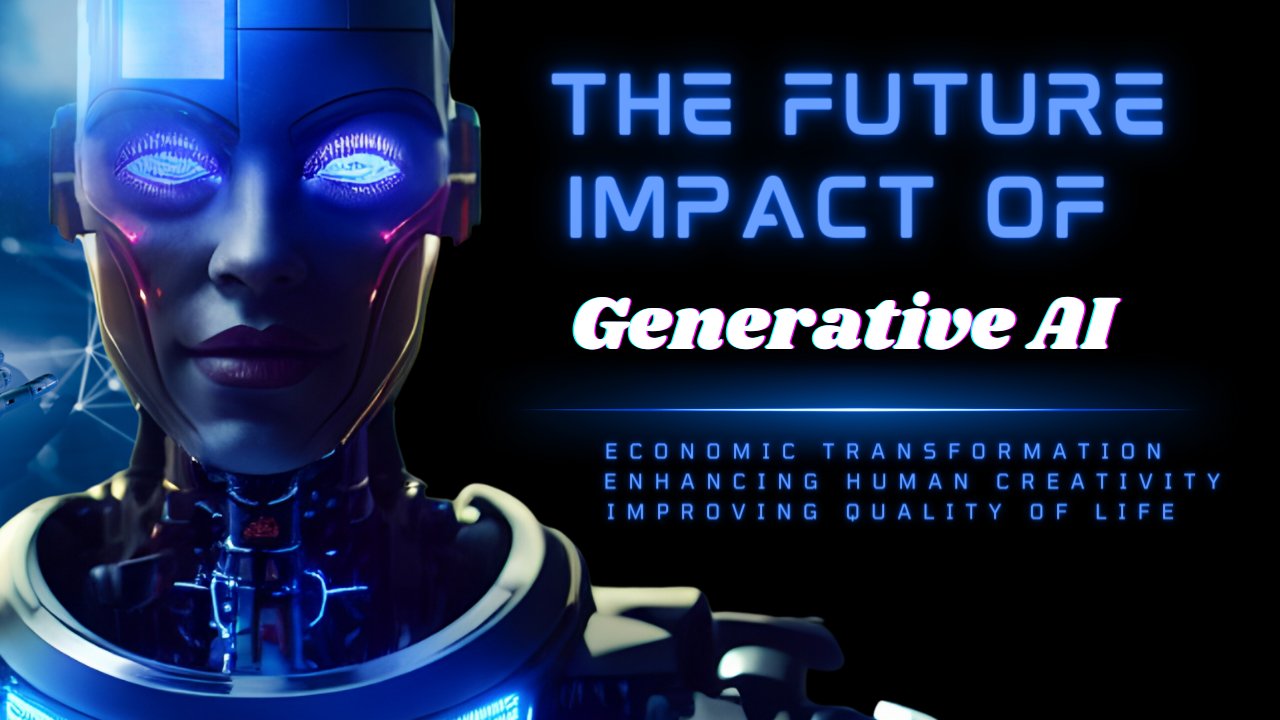
Economic Transformation
Generative AI is set to have a profound impact on the global economy. By automating tasks and creating new opportunities, AI can drive economic growth and innovation. However, it is also important to address the potential displacement of jobs and ensure that the workforce is prepared for the changes ahead.
Enhancing Human Creativity
Rather than replacing human creativity, generative AI can enhance it. By taking over repetitive and very ordinary tasks, AI frees up time for individuals to focus on more creative and advanced digital marketing strategic activities. However, Collaboration between humans and AI can lead to unprecedented levels of innovation and productivity.
Improving Quality of Life
Generative AI has the potential to significantly improve the quality of life for individuals. From personalized healthcare and education to more immersive entertainment experiences, AI can make everyday life more enjoyable and fulfilling. Additionally, AI-driven advancements in sustainability and smart cities can contribute to a healthier and more sustainable world.
Preparing for a Generative AI Future
Education and Training
To harness the full potential of generative AI, it is essential to invest in education and training. Moreover, this includes not only training AI professionals but also equipping the general workforce with the skills needed to thrive in an AI-driven world. Lifelong learning and continuous upskilling will be crucial to adapt to the rapidly changing landscape.
Collaboration and Regulation
Collaboration between governments, industry, and academia is vital to ensure the responsible development and deployment of generative AI. Moreover, the future of AI in social media establishing clear regulations and guidelines can help prevent misuse and ensure that AI benefits society as a whole. International cooperation will also be important to address the global implications of AI advancements.
Fostering Innovation
Encouraging innovation in the field of generative AI will be key to unlocking its full potential. This can be achieved through investments in research and development, as well as creating an environment that supports startups and entrepreneurial ventures. By fostering a culture of innovation, we can drive progress and ensure that generative AI continues to evolve in beneficial ways.
Conclusion
The future of AI, particularly generative AI, holds immense promise and potential. From transforming industries and driving economic growth to enhancing human creativity and improving quality of life, the impact of generative AI will be far-reaching. However, it is essential to navigate the ethical and societal challenges that come with this technology to ensure it is used responsibly and for the greater good. By investing in education, fostering collaboration, and encouraging innovation, we can shape a future where generative AI positively impacts the world. As we move forward, it is up to us to harness the power of generative AI to create a better, more innovative, and inclusive future.
